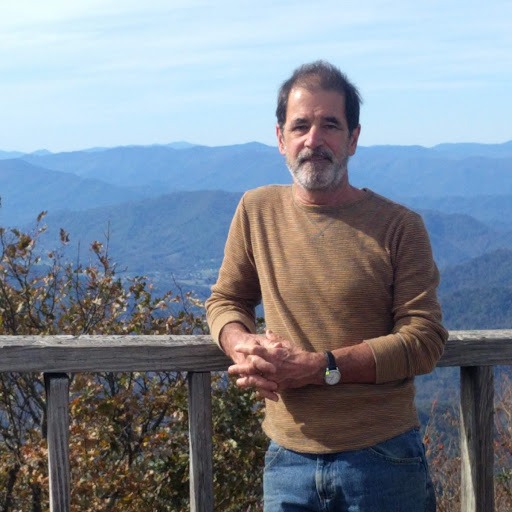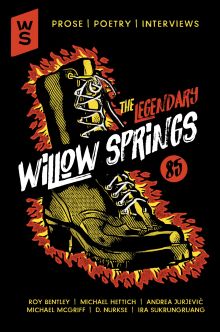
About Michael Hettich
Michael Hettich was born in Brooklyn, NY, and grew up in New York City and its suburbs. He has lived in upstate New York, Colorado, Northern Florida, Vermont, Miami, and Black Mountain, North Carolina, where he now lives with his family. His books of poetry include To Start an Orchard (Press 53, 2019), Bluer and More Vast (Hysterical Press, 2018), The Frozen Harbor (Red Dragonfly Press, 2017), Systems of Vanishing (University of Tampa, 2014), The Animals Beyond Us (New Rivers, 2011) and Like Happiness (Anhinga, 2010). His work has appeared widely in such journals as Ploughshares, Orion, The Literary Review, TriQuarterly, Prairie Schooner, The Sun, Witness, and Poetry East. His awards include three Florida Individual Artists Fellowships, a Florida Book Award, The Tampa Review Prize in Poetry, and the David Martinson–Meadow Hawk Prize. He has served on the board of several organizations, including AIRIE (Artists in Residence in the Everglades) and WAIL (Word and Image Lab). Hettich holds a Ph.D. in literature and taught at the college level for many years. He often collaborates with visual artists, musicians, and fellow writers. His website is michaelhettich.com
A Profile of the Author
Notes on “I Wake” and “The Hive”
Although neither “I Wake” nor “The Hive” is drawn literally from life experiences, both poems feel true to me in ways I always strive for but only occasionally achieve. Though at first they feel like very different kinds of poem to me, as I look at them more carefully, I realize they are actually quite similar in tone and even content, and that their apparent dissimilarity is due mainly to the different cadences that drive them. Both were written in the past year or so, after my wife and I moved from Miami to Western North Carolina; both feel haunted by spirits hovering in our new landscape, feelings and figures we might even stop noticing once we’ve become fully acclimated here. Perhaps that’s one reason I trust them.
Both “I Wake” and “The Hive” draw from random moments of experience, fragments unrelated to each other except in the landscape of the poem. These consist mostly of snippets of observation and overheard conversations that might have vanished entirely had I not remembered them as I wrote. In both cases the act of writing remembered these things for me. I do wake in the middle of the night to listen for night-creatures, and I have noticed that at a certain age, some people look suddenly old. I also know I have had that experience of driving through the dark while someone I love is suffering next to me, right beside me but miles beyond my touch. I’ve also recently had the experience—it felt like a moment of grace—of a bee buzzing wildly under my shirt—and not stinging me. And my wife and I often walk to the meadow a mile or so from our house, to watch the horses grazing there.
I’ve heard that those horses were rescued from abusive owners, nurtured back to health and granted new life in that meadow. Maybe the grace of that beautiful gift somehow sings in my little poem, too.
Music, Food, Booze, Tattoos, Kittens, etc.
Like most writers, music is central to my life and art. I grew up living inside late-sixties rock and folk, as well as bebop and post-bop jazz and even the free jazz of Ornette Coleman and Cecil Taylor. I still love all of that music and know a great deal of it in my bloodstream.
Lately, though, with so much chatter in the air, I often yearn just to listen to the songs and squawks of the actual world. I certainly want a music that engages rather than distracts.
The music that has touched me most deeply for many years, the work that connects with that part of me that aches to write, is neither rock, nor folk, nor jazz, but a more-difficult-to-classify music often called—perhaps pretentiously—“new music.” Among the composers I’m referring to here, I would include John Cage, Meredith Monk, Robert Ashley, Pauline Olivieros, Philip Glass, Steve Reich, Julia Wolfe and Michael Gordon. I’d include some of Brian Eno’s work here as well.
Of all contemporary composers, Terry Riley speaks most profoundly to me, from his earliest work, “In C,” which heralded a new kind of music and listening, to his most recent compositions.
And over the past few months, I’ve been marveling almost daily at John Luther Adams’s beautiful symphonies Become Ocean and Become Desert. All of Adams’s work feels “true” in fresh ways to me; it grows more interesting the more deeply I listen.
In other moods, I find myself turning to David Torn’s haunting Only Sky, and to Laurie Anderson & Kronos Quartet’s Landfall; as far as live music goes, living here in Western NC, we are graced with the likes of Al Petaway and Robin Bullock, two of the greatest acoustic guitarists alive.
By far the best live music I heard in the past year, though, was the Meredith Monk ensemble’s performance of selections from Cellular Songs at the 2019 Big Ears Festival in Knoxville. The work was (and is) literally beyond words


